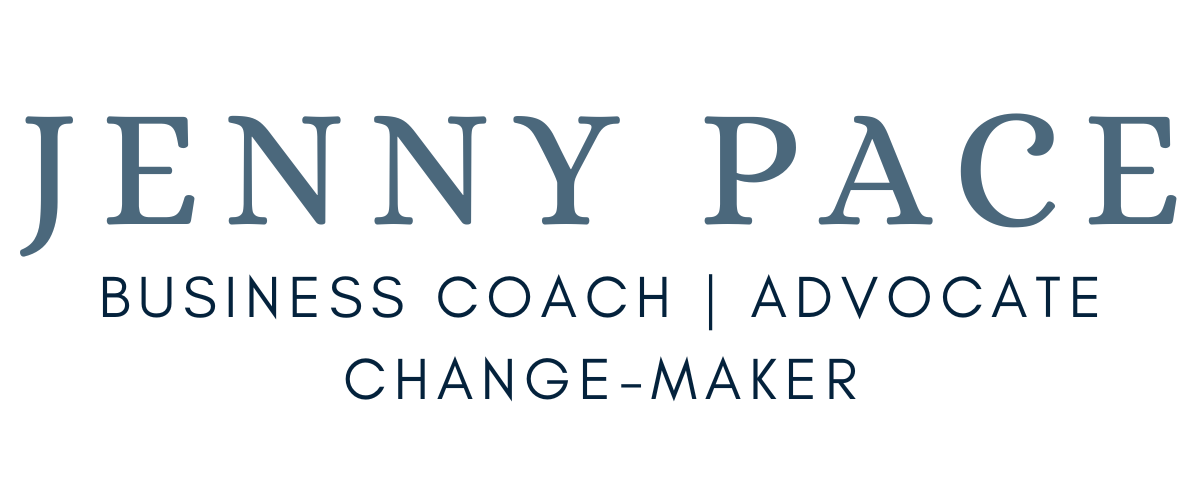 As I write this, I feel nervous, a little shaky, and a little excited. It’s something I believe in, something I feel passionately about, and something I’m discovering to be true, in some way, every day.
As I write this, I feel nervous, a little shaky, and a little excited. It’s something I believe in, something I feel passionately about, and something I’m discovering to be true, in some way, every day.
You know when you hit on something you feel like you just have to do? And it’s scary because it’s outside your comfort zone? That’s where I’m at right now. It’s outside my comfort zone because it’s not the straight-forward “business advice” that I imagine a lot of people are looking for.
But it’s also inside my comfort zone because I know that, especially as small businesses, we have to function from a holistic place, a place of wholeness, where we see that we’re people as well as business owners, manufacturers, workers.
When I created and led my first retreat in March, it was this knowledge that I drew upon. I know that we need rest, rejuvenation, quiet, reflection in order to “function” at our best. I wanted to offer people a soft place to land. And it’s a joy to see how much it has allowed the retreat-goers to do since.
Now, as I think about my work and about planning a retreat for next year, I’m seeing that the holistic, personal approach is really important, more important than just running a weekend where I tell people how to market products, write product descriptions and take photos.
Because I know this to be true: human beings are emotional, feeling creatures.
Whether we like it or not, we have feelings. And what I’ve learned through extensive (and sometimes painful) personal experience is that feelings are meant to be felt. (Disclaimer: I’m still learning that lesson.)
Denial of feelings and experiences muddles us up. Maybe we don’t want to be sad that we were made redundant, or angry that someone did something. Maybe we spend a lot of time trying not to be hurt by someone’s comments or actions. Maybe we pretend to be someone we’re not, so we don’t offend people or annoy them. Maybe we avoid grief.
But all that denial and avoidance and pushing away gets in the way of processing the feelings. Which means that the feelings show up when we’re trying to make “rational” decisions.
If we haven’t admitted to ourselves that we’re hurt by that mean or dismissive comment, then the hurt tries to get our attention. The feeling creeps into thinking, subconsciously. Maybe we start hustling for approval from that person, to make up for the fact they didn’t like us the last time. And then we make decisions that aren’t truly our own.
When we don’t admit that we’re afraid of failure, of being judged, of being rejected, we can’t reassure ourselves. We can’t weigh up the risks in a true and authentic way. We let our fears run us, without really being aware of them at all.
There’s part of me afraid of writing this post. Afraid that there will be people who think it’s too “wishy-washy”, who don’t “get it”, who don’t want to feel the feelings – they just want to hear how to plan for a successful Christmas.
I’ve heard what that part of me has to say. And I know she’s scared of being rejected for having emotions as well as rational thoughts. I know why she’s scared of that – we live in a culture that doesn’t value feelings. It values productivity, output, rational, measurable, clear-cut, and dependable. Which feelings aren’t.
You know what’s dependable about feelings? Once felt, they don’t run the show.
I’ve allowed myself to feel afraid. And now I can bring myself – my whole self, with feelings and thoughts – to say yes to pressing publish.
Here’s the thing
The more you deny your feelings, the harder your brain has to work to compensate. Which leads to over-thinking. Which leads to decision paralysis. Which leads to depression and anxiety.
To break the cycle, you have to feel the feelings.
In this male-dominated world, we talk about “mental health”. I would like a re-brand: emotional health. Mental health speaks of the over-thinking, which is only a result of the under-feeling.
As women, we tend to be particularly susceptible to under-feeling, because it’s “weak”, “unprofessional”, and messy. It is messy, but it’s not weak. And when we’re running businesses, we try so hard to hold other people’s understanding of what it means to be professional, and I suggest that sensitive, feeling, and emotional can be essential parts of our professionalism.
So, to feel your feelings, you may want to try:
- Creating a safe place to do so. It might be with a counsellor, therapist or coach, or a trusted friend or partner. You might need to carve out alone time, in a comfy chair, with no interruptions.
- Free-writing. Once you’re in your safe place, start writing whatever you’re feeling. Just allow what comes, without censoring yourself. If you’re stuck, start with this prompt: right now, I really crave…
- Breathe. If you’re used to pushing feelings down, breathe into being open to them. It’s not easy when you start. It can feel like the world will end. It won’t. Breathe.
- Get the tissues out. Give yourself whatever you need to process the feelings, whether that’s a good cry, a secret shouting match at life, or writing it all down.
- Go gently. Be very kind to yourself. Don’t rush back into thinking or doing. Notice what it was like to feel, and if anything has shifted for you.
You might feel like you’ve opened up an ocean of feelings. You don’t have to feel them all at once. You can be gentle with yourself until you feel strong enough to be honest even more. If you start feeling overwhelmed by the force of emotion, make sure you’re getting some help to guide you through it. The UKCP is a good place to start.
The aim isn’t to be a blubbering wreck the whole time, but to free up your energy to live your life, run your business, make healthy decisions, instead of spending so much energy suppressing feelings you think you shouldn’t have. You should.
And any feeling you have – sadness, fear, anxiety, shame, despair, joy, overwhelm, worry, love – I’ve had too, at some point. We’re human. Feelings happen to everyone. They don’t make you weak.
Just like taking care of your body, you have to take care of your emotions, too.
Take really good care this weekend.
Jx
 I have a client who is a wedding planner. Talented, creative, organised – she’s everything you could want as someone to help plan a very important day.
I have a client who is a wedding planner. Talented, creative, organised – she’s everything you could want as someone to help plan a very important day.



